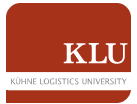This event is part of an IHRM Webinar Series, organized by the Centre for Global Workforce Strategy at Simon Fraser University (Canada), the Center for International Human Resource Studies at the Pennsylvania State University (USA), Pennsylvania Western University (USA), ESCP Business School and RIT Croatia (Europe).
About this event
Increasingly, IHRM scholars are being asked to demonstrate the impact of their research beyond academic networks. In some countries (e.g., U.K., Australia), demonstration of research impact is being introduced as a metric for academic research performance. Research impact is also important for business school accreditation; for example, AACSB International has standards for business schools to demonstrate their contributions to societal needs. For many of us, however, engaging with industry partners, maintaining online social media accounts, and publishing in practitioner-oriented journals, are areas outside our ‚comfort zone‘. This webinar will host a panel of experts whose research is highly impactful. The panel members will share their experiences, insights, and best practices for translating IHRM research for practitioners and broader audiences.
Speakers
- Helen De Cieri (Ph.D.) is a Professor of Management at Monash Business School, Monash University, Australia.
- Betina Szkudlarek (Ph.D.) is an Associate Professor at the University of Sydney Business School.
- Dr. Lauren Locklear (Ph.D.) is a Researcher and Assistant Professor of Management at Texas Tech University in the Rawls College of Business.
- Paula Caligiuri (Ph.D.) is a distinguished Professor of International Business at Northeastern University.
- Sebastian Reiche (Ph.D.) is Professor of People Management at IESE Business School in Barcelona, Spain.
- This session will be moderated by Miguel Olivas-Lujan (Ph.D.), Professor of Management and Marketing at Pennsylvania Western University, USA.
Date: 19 October 2022.
Time: 4:00 p.m. – 5:00 p.m. CEST (Vienna, Berlin, Paris, Zagreb)
More information & free registration here. This event will be hosted virtually on Zoom. Event access links will be provided 24 hours prior to the event start.
Inquiries: beedie-events@sfu.ca
Previous installments of the IHRM Webinar Series are available online at our YouTube Channel.







